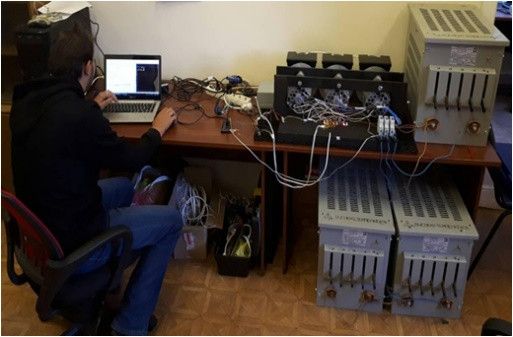St. Petersburg scientists have improved the model that controls automatic systems
One of the fundamental problems in the theory of automatic control is to ensure a given quality of regulation at any given time. If the parameters of the automated process are known and they do not change, then the classical approaches to this process do work. However, if factors, which are not taken into account, interfere with the process, then these methods stop working.
This task can be solved by known methods, such as adaptive and intelligent control, only after the transition process is completed in the system, in other words, under the condition of uncertainty, the control system needs time to accumulate information about the object, after that it will be able to control the object. In practice, the uncontrolled time of information accumulation may become critical for system's operability assurance.
For example, when controlling electric power networks, it is necessary to maintain the frequency and voltage within a given limits all the time. However, in case of icing of wires, short circuit or other unaccounted processes, the frequency may change, and the safety system will turn off the control system, even if in fact this is not required. This will lead to significant delays and time losses which could have been avoided if the system had balanced the frequency rather than disabled the control system.

Figure: photo of an experimental electric power stand developed in IPMash RAS.
“We have proposed a method which allows the system in real conditions, when the parameters are unknown at any time, to be in a given array, that is, the system may deviate from ideal indicators, but within the acceptable limits. We cannot provide one hundred percent of the specified quality, but we can guarantee operability with a small guaranteed deviation, so that it does not affect the operation of the entire system”, said Igor Furtat, the IPMash RAS Chief Researcher.
For example, when controlling an unmanned aerial vehicle, it is important to ensure that it does not deviate in any direction by more than a certain distance. When the model of the IPMash RAS scientists is used, the deviation may change, but it will not go beyond the permissible limits. The model of the IPMash RAS scientists allows to guarantee that the target characteristics are found in the interval specified by the developer at any time. This is achieved through the use of modern nonlinear control methods.
The theoretical results were tested on an experimental stand for electric power grid control, which was developed at IPMash RAS. The experiments showed the effectiveness of the new methods and confirmed the theoretical calculations. The work was supported by a grant from the Russian Science Foundation – "Control of grid systems in conditions of uncertainty and delay with application to control of electric power networks"

